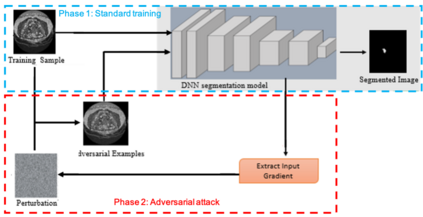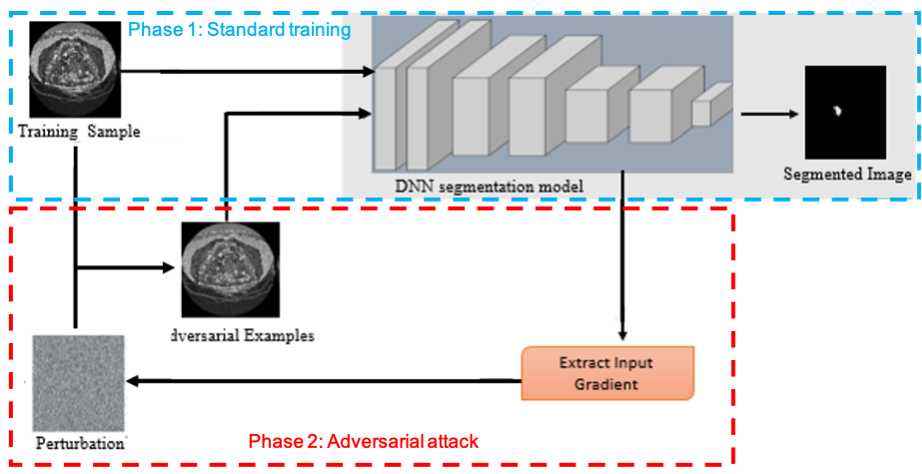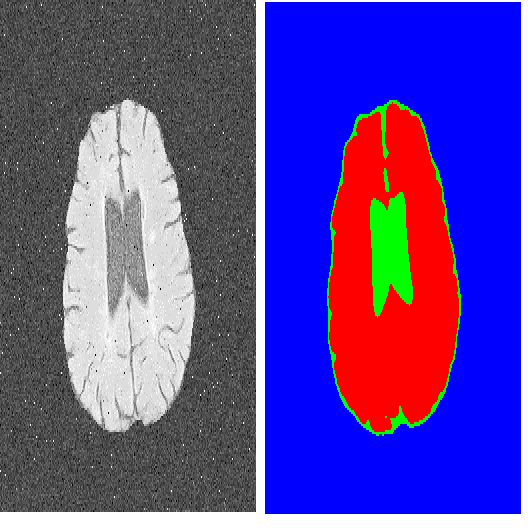Segmentation is considered to be a very crucial task in medical image analysis. This task has been easier since deep learning models have taken over with its high performing behavior. However, deep learning models dependency on large data proves it to be an obstacle in medical image analysis because of insufficient data samples. Several data augmentation techniques have been used to mitigate this problem. We propose a new augmentation method by introducing adversarial learning attack techniques, specifically Fast Gradient Sign Method (FGSM). Furthermore, We have also introduced the concept of Inverse FGSM (InvFGSM), which works in the opposite manner of FGSM for the data augmentation. This two approaches worked together to improve the segmentation accuracy, as well as helped the model to gain robustness against adversarial attacks. The overall analysis of experiments indicates a novel use of adversarial machine learning along with robustness enhancement.
翻译:在医学图像分析中,分类被认为是一项非常关键的任务。这项任务比较容易,因为深层次学习模式随着其高绩效行为而取代了高绩效行为。然而,深层次学习模式依赖大数据证明,由于数据样本不足,这是医学图像分析的一个障碍。使用了若干数据增强技术来缓解这一问题。我们建议采用新的增强方法,采用对抗性学习攻击技术,特别是快速渐进信号方法。此外,我们还引入了反方FGSM(InvFGSM)概念,这一概念与FGSM(InvFGSM)的概念相反,它与FGSM在数据增强方面不同。这两种方法共同发挥作用,以提高分化的准确性,并帮助模型在对抗性攻击方面获得稳健。对实验的总体分析表明,在加强强健性的同时,还新使用了对抗性机器学习。


















